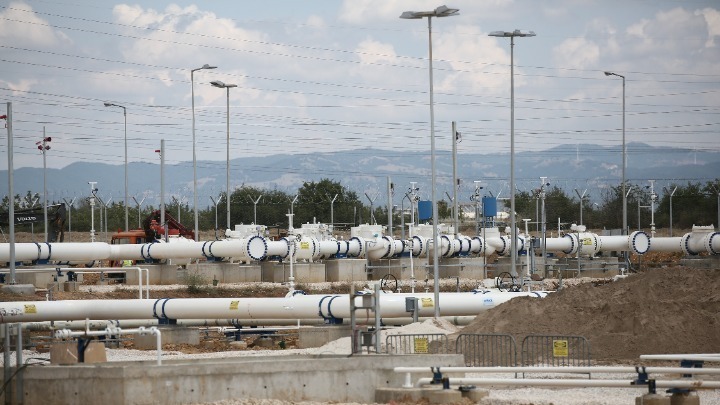DEPA: Operating license for Greek section of Greece-Bulgaria IGB pipeline signed

The operating license for the Greek section of the Greece-Bulgaria Interconnector Pipeline (IGB) has been signed, DEPA announced on Thursday.
This is the last administrative step that allows the start of the commercial operation of the natural gas pipeline as of Saturday, October 1.
Teodora Georgieva and George Satlas, executive officers of the Bulgaria-registered joint venture company ICGB AD that is implementing the project, underlined the importance of the IGB pipeline for Greece, Bulgaria and other neighbouring countries. They underlined that the IGB gas pipeline is a new route for secure gas supply, which will ensure the diversification of natural gas sources and increase market competition.
"We would like to thank everyone who contributed to the successful construction and licensing of the IGB, allowing the commercial start of the pipeline on October 1, 2022, in other words the official start of the new heating season," said Georgieva and Satlas.
"The IGB will make a decisive contribution to increasing security of supply and diversifying natural gas sources for Bulgaria and the wider region of Southeast Europe. The project connects Bulgaria with the Southern Natural Gas Corridor and will enable secure supply from various sources in Southeastern and Central European countries, including Moldova and Ukraine," DEPA added.
The IGB Pipeline (Greece-Bulgaria natural gas interconnector) is implemented by the ICGB AD consortium, whose shareholders are BEH EAD (50%) and IGI Poseidon (50%) in which DEPA International Works and the Italian energy group EDISON SpA participate equally.
The project consists of a pipeline with a length of approximately 182 km (of which approximately 31 km are within Greek territory), starting at Komotini and ending at Stara Zagora, with the possibility of reverse flow. Its interconnection with the TAP pipeline is also envisaged. The IGB pipeline has an initial capacity of 3 billion cubic meters of natural gas (bcm) per year, with the possibility of increasing this to 5 billion cubic meters of gas annually with the construction of a Compression Station.

